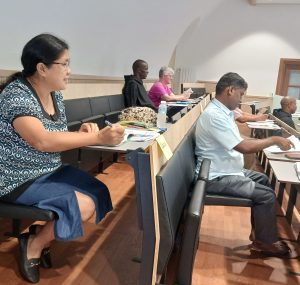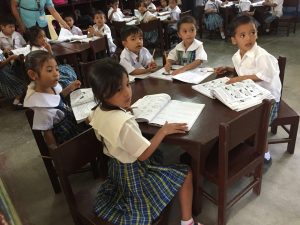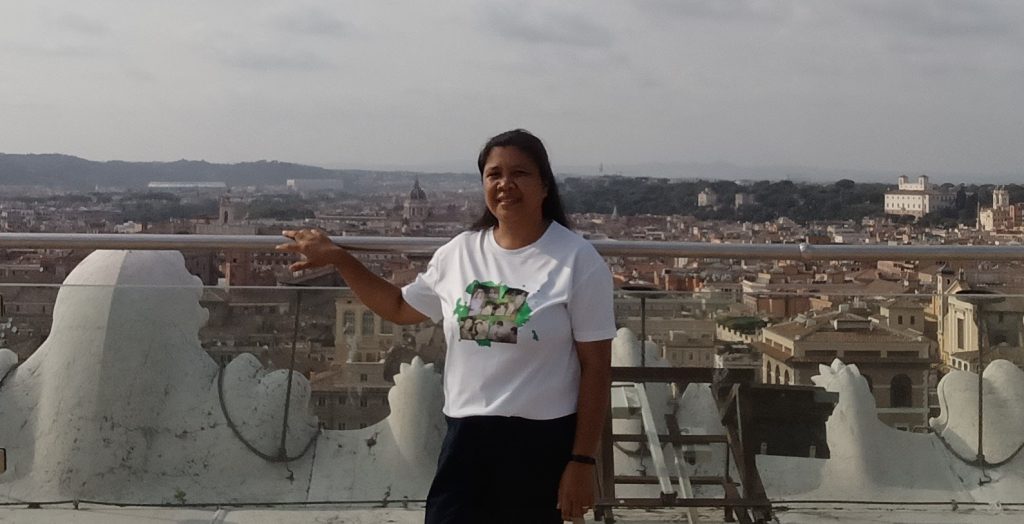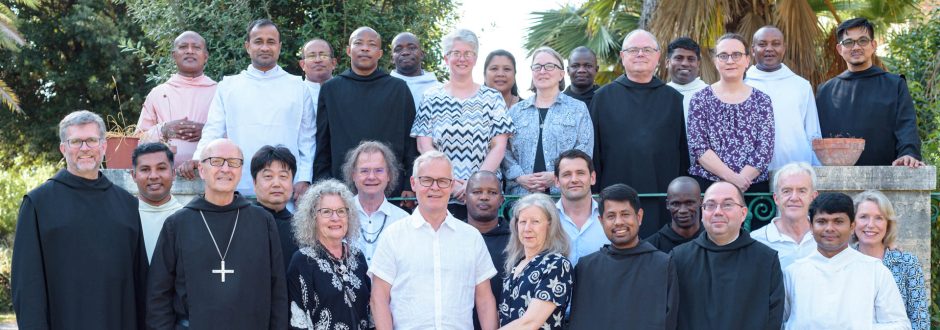A short course in Rome on Leadership in the Rule of St Benedict was not only a wonderful experience of intercultural learning for Good Samaritan Sister Grace Marcelo, but also gave her fresh insights and strategies to share with others in her ministry in Bacolod, the Philippines.
Grace attended the two-week course last month and said the highlight was being part of the intercultural group.
“Meeting and building connections with other Benedictine sisters and brothers was a highlight,” she said. “And exchanging stories and experiences was a good learning for me as well.”
Benedictine Abbott Primate, Gregory Polan OSB, said the Leadership in the Rule of St Benedict course had been running for some years now and attracted members of Benedictine communities from around the world.
“I think that it is worthwhile not because we tell people how to be leaders, but more that we encourage them to think about what leadership means. What does it mean in the context of their own community, what is it saying in their part of the world and how do they see themselves fitting into this,” he said.

Sr Grace Marcelo said the course was very practical. Image: Sisters of the Good Samaritan.
“When I see these participants who are coming from all over the world, I first of all hope that they can learn from one another, in the context of their being together and talking together, then begin to learn and see different ways of how their monasteries work and they get insights into how they can be of service to others.
“And it’s a wonderful thing too, because the opportunity to engage with other cultures is also a way to see ourselves more and more as we are becoming a global world, a global Church, a global society.”
The course is organised in four modules: Strategy Making, Shaping Organisations, Personal Leadership, and Project Management.
Professor Gunter Muller-Stewens, of the University of St Gallen Business School, said he and three colleagues teach the different modules of the course.
“We are using three sources of wisdom,” he said. “The wisdom of the Church, the wisdom of the Rule of St Benedict, and secular wisdom.
“The reason why we are doing this is because we appreciate very much the cultural heritage of the Benedictine Order, what they did for the world over the past 1500 years, and we hope that we can contribute a little bit to cope with the challenges of our time for the Order.”
Grace said the course was a time of personal growth for her but would also have a practical impact on her ministry in the Philippines.

The Good Sams have had a presence in Bacolod for more than 25 years. Image: Catherine Creswell / Sisters of the Good Samaritan.
The Good Samaritan Sisters have had a presence in Bacolod for more than 25 years, operating a Kinder School, providing food for the children at the local orphanage and operating an Outreach Centre serving people living in squatter settlements along the coastal shoreline of the densely populated city.
“The learning from the course is helpful for our ministry in Bacolod, for both the Kinder School and the Outreach Centre,” she said.
“The Strategic Planning element is particularly useful for us as we continue to strive to become more sustainable in our ministries. I am hoping to conduct a series of sessions for our Kinder staff and Centre teams at the beginning of next year.
“And we have started a governance committee here, so the strategic planning learnings can also be shared in that context.”
Grace said that apart from the main input sessions each day, much of the work of the course was done in small group workshops.
“The input was short and then we went into small groups to apply it to one of our congregations and a particular situation they faced. It was very practical, and I learnt a lot from that as well,” she said.
“It was about building bridges between the resources and the wisdom, drawing wisdom from the Rule of Benedict and secular wisdom, and bringing them all together, because although we are religious, we still need to draw from the science outside of religion too.
“It was a very good opportunity to be part of this group and learn more about religious in other congregations who are in leadership roles because there aren’t really any opportunities like this in the Philippines.
“And it was really for the ministry here where our emphasis is the need of our stakeholders. What is the need of the people we serve and how can we continue to serve them better? That’s what it is about.”

Sr Grace Marcelo was in Rome to do a short course on Leadership in the Rule of St Benedict. Image: Sisters of the Good Samaritan.
